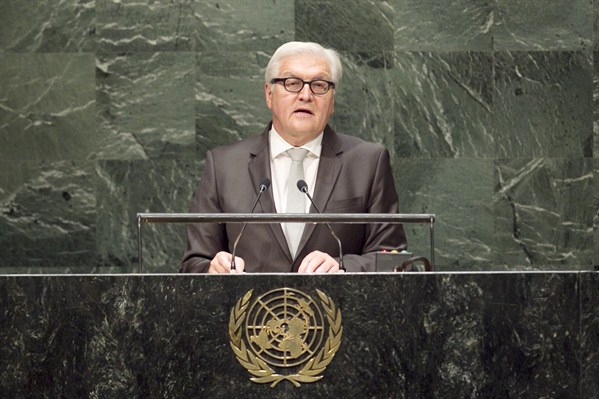Germany has never been an entirely comfortable power at the United Nations. The Security Council is, as Russian diplomats like to note, still run by the countries that defeated Hitler in 1945. East and West Germany did not even join the U.N. until 1973. Nevertheless, Berlin now pays over 7 percent of the U.N. budget, while Britain and France cover less than 6 percent each. At regular intervals, the Germans launch quixotic campaigns to win a permanent seat on the Security Council. Time and again, these plow into the sand.
Despite these bids for a bigger role, German diplomats often seem quite happy with their limited role at the U.N. It demonstrates how far the country has come since its power-hungry excesses of the early 20th century. As Hans Kundnani has argued in a recent book, it also suits Berlin to avoid picking costly fights with economic partners such as China and Russia at the Security Council. Berlin made this manifest with its decision to abstain in the council vote on the Libyan war in 2011. As I noted in a paper for the European Council on Foreign Relations (ECFR) in June, “officials in Berlin still do not see the UN as a crucial part of their security strategy, or know much about it.”
Yet last week, German Foreign Minister Frank-Walter Steinmeier launched a blunt attack on the Security Council’s divisions and failure to take real action over Syria.

